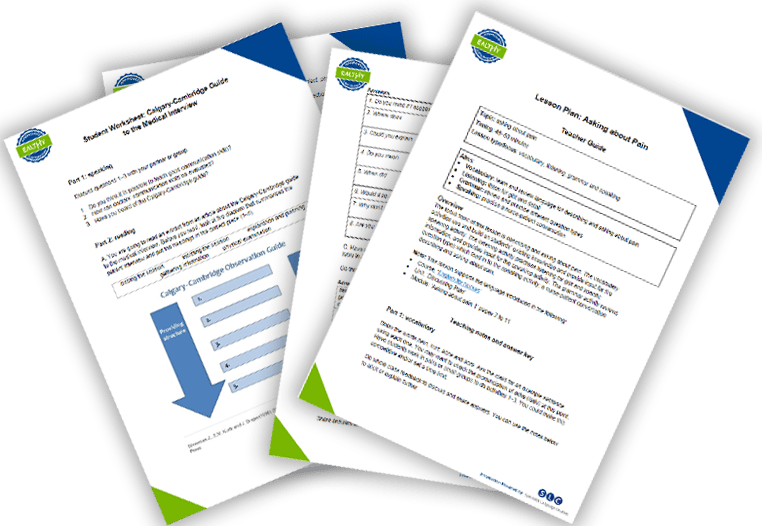Medical English Teaching Resources
Do you teach Medical English?
Get free lesson plans, articles and teaching tips here.

Do you teach Medical English?
Get free lesson plans, articles and teaching tips here.

Digital coursebooks: These courses combine the structured approach of textbooks with interactive features like video, audio, recording, and hands-on activities, making classes more dynamic and engaging.
Blended learning: Students study specific materials, such as medical terminology or patient communication, independently. Teachers then use lessons to activate the language through discussion, role-play, and problem-solving tasks.
Complementary study: Teachers can assign parts of the course for independent study, helping students reinforce classroom learning and build a solid language foundation, allowing teachers to focus on delivering the curriculum in class.

We have many more available on our partner’s website. EALTHY is a unique international association for English for Healthcare teachers, writers and researchers. It offers members a growing bank of lesson plans, OET resources, articles and research summaries, as well as free and discounted access to conferences, journals, publications and SLC courses!
Through our partnership, we publish at least three new plans in the EALTHY Members Area every week. So, if you’re a teacher looking for excellent resources, now is the time to join an international English for Healthcare community and take advantage of everything EALTHY has to offer.
Annual memberships are available for teachers and for institutions. We hope very much to see you there!

Subscribe to the newsletter to keep up to date with all our new resources.
